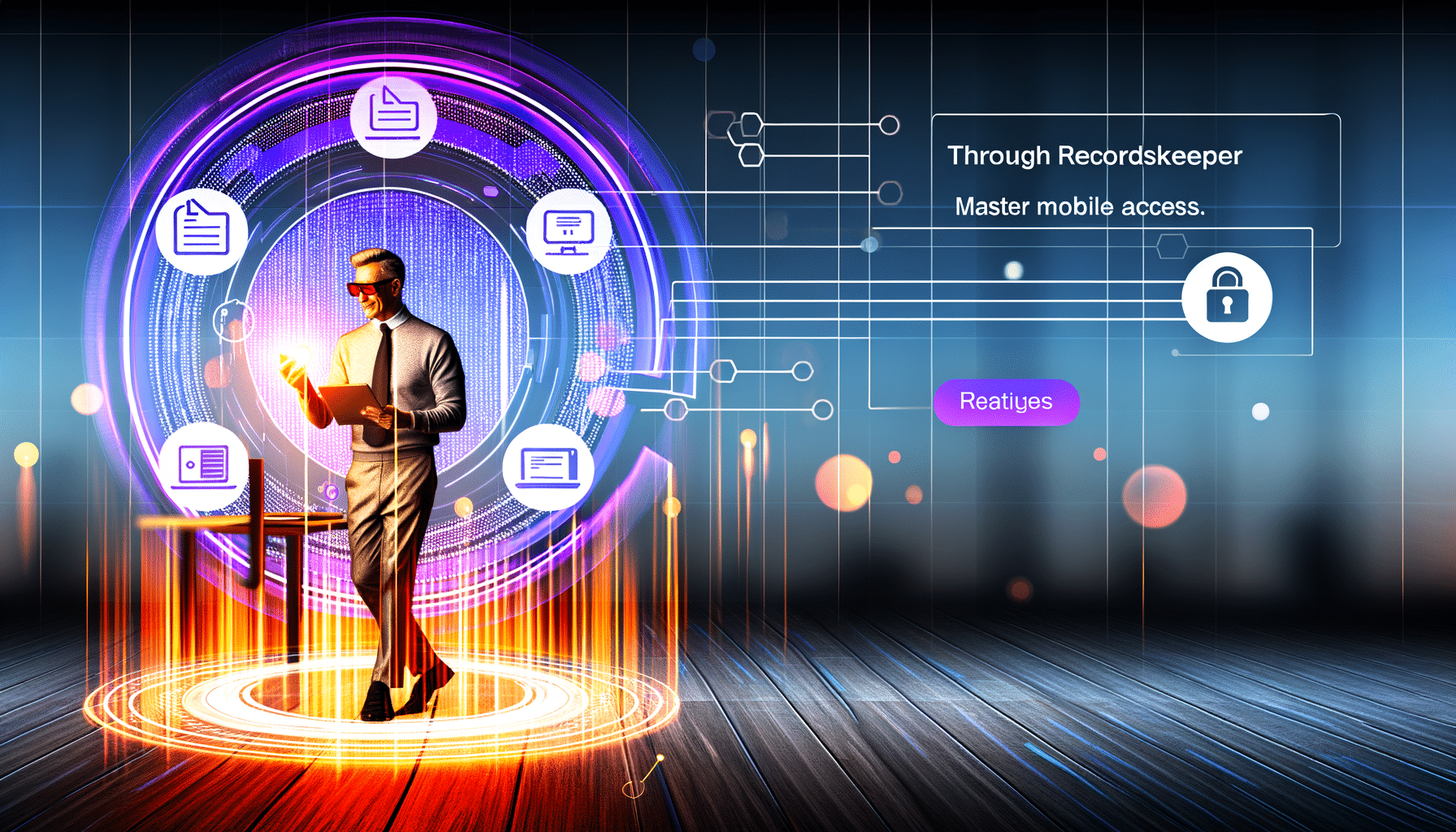- Mobile Solutions
- June 25, 2024
The Impact of Mobile Technology on Government Record Keeping

Transforming Government Record Keeping with Mobile Technology
In today’s fast-paced digital world, staying up-to-date with the latest technology can be challenging, especially for government agencies that manage vast amounts of data. As someone deeply entrenched in the tech industry, I have witnessed firsthand the immense transformation that mobile technology brings to the table, particularly in the realm of record management. Governments, which are often perceived as cumbersome and slow-moving, now have a golden opportunity to refine their record-keeping practices with mobile technology, leading to improved efficiency, access, and security.
The Rise of Mobile Technology in Government Practices
Mobile technology is not merely the improvement of communication. It heralds a new era where accessing government records is no longer a time-consuming chore riddled with bureaucratic hurdles. Imagine having thousands of files, details, and data points at your fingertips, ready for action regardless of where you find yourself. Mobile technology makes this a reality by enabling government employees to manage and access records through smartphones and tablets.
From public health departments benefiting from real-time updates to law enforcement agencies rapidly retrieving essential data, the applications are numerous and impactful. The accessibility provided by mobile devices essentially “unties” government employees from their desks, allowing for a more dynamic approach to record management where solutions are implemented on the go, and decisions are made faster with reliable data access.
Enhanced Accessibility and User Experience
One persistent challenge within government sectors has been ensuring that key personnel have timely access to the right data. Mobile technology elegantly addresses this by offering accessible, user-friendly interfaces that can handle complex datasets with ease. Users can retrieve documents, update records, and verify data in real-time, thereby enhancing transparency and accountability.
Improved user experience culminates in increased employee productivity. When government staff can effortlessly access records as needed, there’s a resultant reduction in downtime. Consider a scenario where a government official at a public meeting needs updated statistics—mobile platforms allow them to provide accurate information swiftly, reflecting positively on the efficiency of their department.
Fortifying Security with Mobile Solutions
One key concern when discussing digital and mobile solutions is security. It goes without saying that government records contain sensitive information requiring the utmost protection against unauthorized access. Fortunately, today’s mobile technology does not compromise security for convenience. With advanced encryption methods, biometric authentication, and secure connections, it offers a robust defensive framework that ensures information security.
Moreover, with the adoption of mobile technology, there’s greater scope for implementing comprehensive audit trails. By recording every access and modification made to records, government agencies can maintain highly detailed logs, thus cultivating a culture of accountability. This visibility is crucial for adhering to compliance requirements and regulations that govern data privacy.
Streamlining Government Records with Mobile Innovations
The very essence of record management hinges on efficiency, and mobile technology significantly streamlines this cascade of processes. Automated updates, cloud integration, and AI-powered assistance provide innovations that transform record-keeping into a seamless experience. These benefits come not only through reduced manual labor but also through smart analytics that highlight areas for improvement.
For thriving democracies, fostering citizen trust is imperative. As mobile technology facilitates transparency by providing citizens with easier access to public records, governments can nurture a community that feels both informed and included in governance processes. An informed public upholds a government that is both effective and respected.
Conclusion: Embracing a Mobile Future for Government Record Keeping
The journey towards modernizing government records is well underway, with mobile technology offering an encouraging Route. Government departments that fail to take advantage of these advancements might find themselves lagging in the race for improved services and citizen satisfaction. Embracing mobile technology is not just an option; it’s a necessity in today’s digital age, where information must be managed efficiently and securely.
As I reflect on the technological landscape, I am optimistic about the future of government records. The proliferation of mobile devices will continue to revolutionize how records are accessed and managed, delivering unprecedented agility and security. For those of us invested in observation of government technology shifts, this is a thrilling time, presenting new frontiers and possibilities. I invite you to stay informed and engage actively, joining me on this journey of innovation and advancement in public record management.
Toshendra Sharma is the visionary founder and CEO of RecordsKeeper.AI, spearheading the fusion of AI and blockchain to redefine enterprise record management. With a groundbreaking approach to solving complex business challenges, Toshendra combines deep expertise in blockchain and artificial intelligence with an acute understanding of enterprise compliance and security needs.
Related Posts

Through RecordsKeeper.AI: Master Mobile Access
Perfect mobile record access for remote teams.
- November 16, 2024
Archives
- December 2024
- November 2024
- October 2024
- September 2024
- August 2024
- July 2024
- June 2024
- May 2024
- April 2024
- March 2024
- February 2024
- January 2024
- December 2023
- November 2023
- October 2023
- September 2023
- August 2023
- July 2023
- June 2023
- May 2023
- April 2023
- March 2023
- February 2023
- January 2023
- December 2022
- November 2022
- October 2022
- September 2022
- March 2019
Want to get more content like this?
Signup to directly get this type of content to your inbox!!
Latest Post
Organizing External Auditor Access
- December 22, 2024
Document Control in Manufacturing Plants
- December 21, 2024
Handling Rush Financial Report Requests
- December 20, 2024
Managing Record Access After Staff Changes
- December 19, 2024





